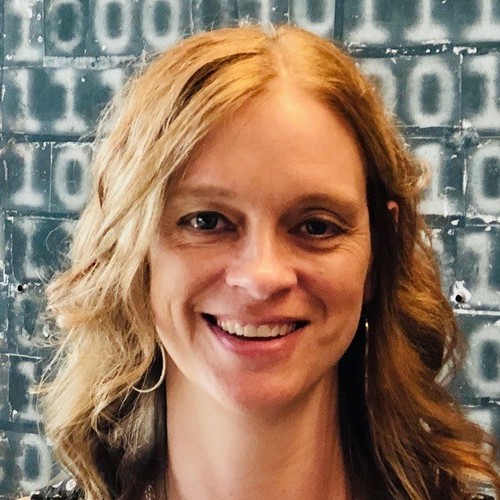By Diane Steiger of Matrix College Consulting
If you’re a high school senior, you might be feeling like it’s application crunch time. You also might be facing bouts of procrastination and early senioritis. Managing your time can help you get to the finish line with less stress. You can do this! Here are six tips for setting and meeting all of your important college deadlines.
1. Work backwards
Once you know your final application deadline, begin with that date and start setting goals. If you are like so many other high school seniors, you are applying to at least one school via early action. The early action application deadline for many universities is November 1st. I often tell students to have a buffer in case anything needs revising or changing, so they should have everything complete and ready to submit about ten days early. In the case of an early action application, that final deadline would be October 21st.
2. Prioritize
You may feel overwhelmed with all of the tasks on your to-do list. Write them down on post-it notes, then start ordering them. Let’s say you’ve already asked your favorite teacher for a letter of recommendation, and now you’re ready to polish up your personal statement essay. But guess what? That teacher might ask you for an activities résumé so she can add some of your accomplishments when she writes an awesome letter about you. Some of your tasks might be connected, so you need to think of which ones might come before others.
3. Break up big tasks into smaller pieces
Does your personal statement essay loom large? Are you having a hard time starting your activities list? Break your big task up to make it more manageable. Here are two ways to tackle this:
- Break up a task into actionable, smaller steps. If you are applying to six colleges, and each of them requires you to answer a different set of questions on the Common App, fill out answers for one college each day until it’s done.
- Dedicate a certain amount of time per day to big tasks. Put 20 minutes on your calendar at the same time every day to write that final supplemental essay. It’s only 20 minutes, then you’re done for the day. You will feel a sense of accomplishment knowing you are working toward completion.
4. Make sure all the parts of your application are done on time. (Different parts of the application may have different deadlines.)
- The application: This is your primary submission to the college. It can be through Common App (most accepted – over 900 schools use it), Coalition App, or individual college’s application portals. This application will include your demographic information, activities list, honors, essay, any supplemental essays, teacher/counselor letters of recommendation, and more. Most schools have different sets of deadlines depending on the process by which you apply: Early Action, Early Decision, or Regular Admission.
- Merit scholarships: This one can get a little tricky, so it’s important for you to check the websites of each of the colleges to which you are applying. While some colleges require supplemental applications, many schools that offer merit aid will automatically consider you for their scholarships if you apply by a certain deadline (often the Early Action deadline). Still other schools will require extra essays for certain scholarships but not others. Do your research early enough to apply.
- Financial Aid Documents:
§ FAFSA. The Free Application for Federal Student Aid is a requirement to apply for need-based aid, and, depending on the college, might be necessary when applying for merit aid as well. It opens on October 1st, and should be completed by the college application deadline.
§ CSS Profile. Many universities require families to fill out a separate financial profile to qualify for institutional aid. This should also be completed by the college application deadline.
- Test Scores: Are you submitting an ACT or SAT score? Though you can self-report your scores on Common App, many colleges require an official score report to be sent with your application. These are ordered through ACT.org or CollegeBoard.org (for the SAT). Generally, I recommend ordering official scores at least three weeks before your application deadline.
5. Use tools that work for you
- Are you a paper-and-pencil person? Make your list on a note pad, in a planner, in a fancy notebook, or even make a college bullet journal. Get some fun, colorful pens and markers to keep you motivated. There’s nothing like checking off a task with a fun sharpie!
- Maybe you cannot live without the Reminders app on your phone. Create a new college to-do list, complete with dates and times. There’s even a repeat feature if you want to schedule a few minutes a day.
- If you like trying new things, take a look at apps like ClickUp, ToDoist, Remember the Milk or Evernote to keep track of your tasks. Some features, such as sharing, subtasks, tags, projects, and voice reminders can take your list to the next level.
6. Get your mind right
- Envision success. Close your eyes and take a moment picture what it will look and feel like once you’re done with all of your tasks.
- Work on your tasks daily. I tell my clients to add “College Applications” to their schedule like a new class. It’s your homework and it’s due daily. That can put you into the right mindset to work on your applications with regularity.
- During your work time, remove as many physical distractions as you can. Close browser windows on your laptop and put your phone in the charger in another room.
- Reward yourself for your successes. Did you work on your applications/essays for 90 minutes straight? Time for a Tik Tok break! Did you make that phone call to the admissions officer to schedule an interview? Eat that bowl of ice cream!
- Get help from the adults in your life. You can ask your parents to help hold you accountable, your high school counselor to help find the deadlines, and a college consultant to help you put everything together.
Setting goals and meeting deadlines are important life skills. Every step of the application process that you accomplish will help you become more self-reliant, a trait that will carry over in college, in work, and in life.
About the Author: Diane Steiger is an Independent Educational Consultant and the owner of Matrix College Consulting. She guides high school students and their families through the ever-changing college admissions landscape. She helps students find colleges that fit them best, and helps families by taking the stress out of decision making and fact finding. Diane has over fifteen years of teaching experience, as both a high school teacher and college instructor. She has a master’s degree in education from The Ohio State University and a bachelor’s degree from DePaul University. She is a member of IECA and OACAC. To learn more about Diane and her consulting services, please visit matrixcollegeconsulting.com.







